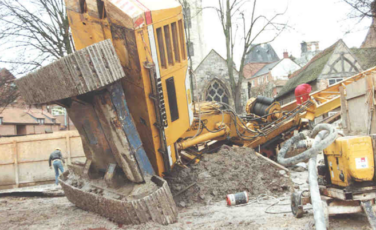
Defining a pragmatic approach to the life cycle of a safe working platform is the ongoing mission of the EFFC/DFI’s joint task group.
At our meeting in Amsterdam, Jim De Waele reported on the progress being made to address two of the most technically complex issues with platforms: how do you design them properly and how can you test them to ensure they are fit for purpose throughout their use? Field Research Studies are ongoing or being commissioned to address these.
Regarding testing – data collection is ongoing to compare different testing methods. The ‘holy grail’ is to find an effective, quick, and low-cost test that can be carried out with minimal training that would allow for ongoing assessments of the platform throughout the project. This work is well advanced and should be completed within the next 12 months.
Regarding design there is a big challenge. How can we ensure different working platform design methods produce more consistent results? Even with the same base data sets these can produce widely varying results. Therefore, a research proposal is being developed to do a sensitivity analysis on the input parameters for the design methods. The intention is to define which parameters are the most meaningful so that we can bring the current variance in thickness within a tighter, more consistent range whichever method is being used.
It is not the intention of the Task Group to recommend any particular design method. Rather it intends to improve the process so that better understood parameters are used to inform the design of the platform, and once it is constructed, the design assumptions can be properly tested before and during use.
Jim de Waele and Peter Faust are leading the EFFC/DFI work in this area. They are in discussion with the University of Stuttgart to build on research they have already undertaken on platform design.
